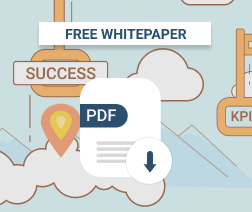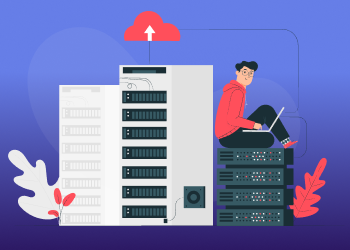It was not that long ago that a thought leader had to earn their reputation. These days, just about anyone can set themselves up as a thought leader and share their opinions on a global platform.
They need not have experience or expertise. They just require the ability to market themselves effectively to a wide audience. This helps to seal their reputation and reach “influencer” status.
While there isn’t anything wrong with this as such, the problems come when IT professionals take every opinion of these thought leaders at face value, or as fact. The result can be misleading information that isn’t relevant or appropriate for your needs and aims.
An Opinion Is Not a Guarantee of Success
When you rely on the opinions of others to guide your business strategies, there’s no guarantee of success. Every business is unique. They each have varied customer bases, individual personal and financial aims, and multiple other factors, which all require a unique approach.
In short, what works well in an “expert’s” opinion, may not be the right way forward for you as an IT professional.
And there’s a further issue: there’s no way of knowing how the thought leader came to reach their opinions in the first place. It could be down to their own biases or flawed data. If this is the case, it could set you up for failure. At its worst, the undue influence of other people’s opinions can come close to destroying your business.
Without Data, You’re Just Another Person with an Opinion
When listening to some of today’s thought leaders or influencers, it’s important to know that the views they are expressing are just that: an opinion. The definition of an opinion is:
A view or judgment formed about something, not necessarily based on fact or knowledge.
Or:
A statement of advice by an expert on a professional matter.
When you depend on the advice of others, you’ve no way of knowing if it’s suitable for your situation. However, the same doesn’t apply to data.
The Value of Data
Data provides the exact opposite of pure opinion. It’s based on hard facts. It tells you where your company is now. It also provides essential clues on the direction your business is going in and areas for improvement. With no access to data, business leaders often follow instinct or “gut feelings”, or the opinions of others.
Companies that outshine their rivals and always have a clear strategy, take the opposite approach; they follow the data and see what it tells them about the state of their business. Among other things, this data allows companies to identify trends, spot areas of low productivity, and improve profits.
However, the real beauty of data is that it’s accessible to any company, regardless of its scale. You don’t have to be an Amazon or Google-type goliath to benefit from it. Through data, IT professionals from all backgrounds can be certain they’re making the best decisions for their company based on solid facts, not mere opinion.
Companies Using Data to Guide Their Decisions
Data-driven decision-making is a key strategy for some of the world’s most successful businesses. Google, Amazon, and Southwest Airlines are just three companies that take this approach and utilize it very successfully.
For instance, Google’s People Analytics department uses productivity data and employee feedback through its Project Oxygen team to get a clear picture of employees’ behavior. Google then used the data it received to develop the Oxygen 10 behaviors of skilled managers for training and leadership purposes and to evaluate what makes a good team.
Further reading Understanding Business Processes for MSPs: Finance and Profitability
Too Much Information
We’ve discussed the value of data and how it’s crucial to your business, but you should also know that there is such a thing as too much information.
And as any expert will tell you, data doesn’t make you smarter; knowing which data to take notice of does. A good example of this is vanity metrics. These include web page views, social media likes, and video shares.
These metrics aren’t likely to have any significant impact on your company’s bottom line and won’t help to guide your company’s strategy.
How MSP Users Can Benefit from Data
The benefits of using data to shape your strategy are undeniable, but how do you know which data to focus on? You need to take some basic steps.
Define your objectives: First, you must be clear on your overall business objectives and utilize this for your decision-making, in addition to making use of the tools at your disposal. The cloud, for instance, has greatly changed the way that MSPs use IT resources. When it comes to data, the cloud offers encrypted and secure data on-the-go to your company. There will be many variables in this part but, for many, it will be the financial side, customer data, marketing, growth, and key operational areas. With the objectives then clear, IT professionals can start looking at what areas of their business they need to focus on.
Ask the right questions: To get results for your business, the questions you ask must be specific and achievable. For instance, you might want to know which channels you should concentrate on to increase revenues or boost customer retention, or how to enhance the customer experience.
Measuring KPIs: Now you need to identify the KPIs needed to provide the answer to those questions. This will vary depending on the business type but common KPIs important to an IT professional include:
1. Time to resolve/escalate queries
2. Network and email client availability
3. Employee satisfaction
4. Project profitability
5. IT costs vs revenue
6. Handling times
7. IT return on investment (ROI)
Once you have the data, you can then make concrete decisions based on the hard facts available.
Further reading Introduction to Financial KPIs for MSPs
Conclusion
Opinion has its place, but IT professionals should not value others’ opinions above all else. Many of today’s thought leaders are marketers first and foremost, and their views of what is right and wrong may not be a suitable fit for you as an IT professional.
However, data provides the polar opposite: a set of facts unique to your IT department. As an IT professional, you can then analyze it to spot patterns and boost profits, and to answer the questions you most need to ask about your business.





